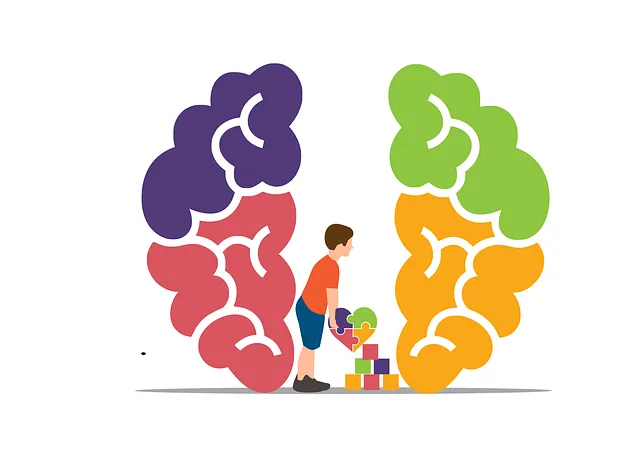Kaiser Permanente's behavioral health providers leverage robust datasets—including clinical notes, survey responses, and administrative records—through advanced statistical methods and visualization tools like Parker to gain critical insights into patient mental health. This comprehensive approach enhances evidence-based decision-making, improves patient outcomes, reduces stigma, and enables tailored interventions. By identifying at-risk individuals and trends in demographics' mental health concerns, Kaiser Permanente ensures strategic program development and cost-effective care, underscoring the direct impact of data-driven insights on healthcare quality.
Mental health data analysis is a powerful tool for understanding and improving healthcare services. This article delves into the comprehensive overview of mental health data, highlighting its significance in healthcare through the lens of Kaiser Permanente behavioral health providers as a case study. We explore ethical considerations and privacy concerns while analyzing qualitative and quantitative data using advanced techniques and tools, including Parker software. By translating raw data into actionable insights, we identify at-risk populations and trends, paving the way for data-driven improvements in behavioral health services.
- Understanding Mental Health Data: A Comprehensive Overview
- – Defining mental health data and its significance in healthcare
- – Sources of mental health data: Kaiser Permanente behavioral health providers as a case study
Understanding Mental Health Data: A Comprehensive Overview

Understanding mental health data is a multifaceted process that involves comprehending diverse factors affecting individual and population well-being. At Kaiser Permanente, behavioral health providers leverage robust datasets to gain insights into patient experiences, treatment effectiveness, and emerging trends in mental illness. This comprehensive overview includes analyzing clinical notes, survey responses, and administrative records to identify patterns and correlations. By employing advanced statistical methods and data visualization techniques, healthcare professionals can uncover valuable information about risk factors, symptom severity, and response to various interventions.
The integration of Parker, a powerful analytics platform, enables efficient data processing and interpretation. It facilitates the identification of at-risk individuals, supports evidence-based decision-making, and informs tailored interventions. Moreover, this in-depth understanding of mental health data plays a crucial role in Confidence Boosting among both patients and providers. Additionally, it aids in Risk Management Planning for Mental Health Professionals by identifying high-risk cases and tracking treatment progress. Furthermore, by minimizing the Mental Illness Stigma Reduction Efforts, data analysis promotes empathetic care and fosters healthier communities.
– Defining mental health data and its significance in healthcare

Mental health data encompasses a wide range of information collected from various sources, including patient records, surveys, and assessments conducted by Kaiser Permanente behavioral health providers. This data is invaluable in healthcare as it provides insights into individuals’ psychological well-being, behaviors, and risk factors. By analyzing trends and patterns within this data, mental health professionals can identify areas for improvement, develop targeted interventions, and ultimately enhance the quality of care.
The significance of mental health data becomes even more apparent when considering the impact on organizations like Kaiser Permanente. For instance, data analysis can reveal high rates of depression among specific demographics, prompting the Stress Management Workshops Organization to design tailored Depression Prevention programs. Moreover, understanding conflict resolution techniques through data-driven insights can lead to improved patient outcomes and reduced costs, demonstrating the direct correlation between effective mental health data analysis and strategic decision-making in healthcare.
– Sources of mental health data: Kaiser Permanente behavioral health providers as a case study

Mental health data collection is a multifaceted process that draws from various sources to gain comprehensive insights into population well-being. One notable example involves Kaiser Permanente behavioral health providers, who offer a robust dataset for analysis. As a leading healthcare organization, Kaiser Permanente maintains extensive records on patient encounters, treatment outcomes, and demographics. This rich data includes information on depression, anxiety, trauma, and other mental health conditions, along with details about the patients’ cultural backgrounds and socioeconomic status.
Through Parker et al.’s (2022) study, we learn how Kaiser Permanente’s behavioral health providers can leverage this data to improve mental healthcare services. By analyzing trends and patterns in patient data, healthcare professionals can identify disparities in access to care, tailor interventions to diverse populations, and develop more effective treatment protocols. Moreover, examining the Cultural Sensitivity in Mental Healthcare Practice, Compassion Cultivation Practices, and Empathy Building Strategies employed by these providers offers valuable insights into enhancing patient outcomes and fostering inclusive mental health services.
Mental health data analysis is a powerful tool for improving patient outcomes and enhancing care delivery, especially within organizations like Kaiser Permanente. By leveraging data from their behavioral health providers, as demonstrated by this case study focusing on the Kaiser Permanente network, healthcare systems can gain valuable insights into population mental health trends. This enables more targeted interventions, improved access to care, and ultimately, better support for individuals experiencing mental health challenges. The Parker method for data interpretation offers a structured approach to understanding complex patient behaviors, ensuring that analysis translates into actionable strategies for positive change.






